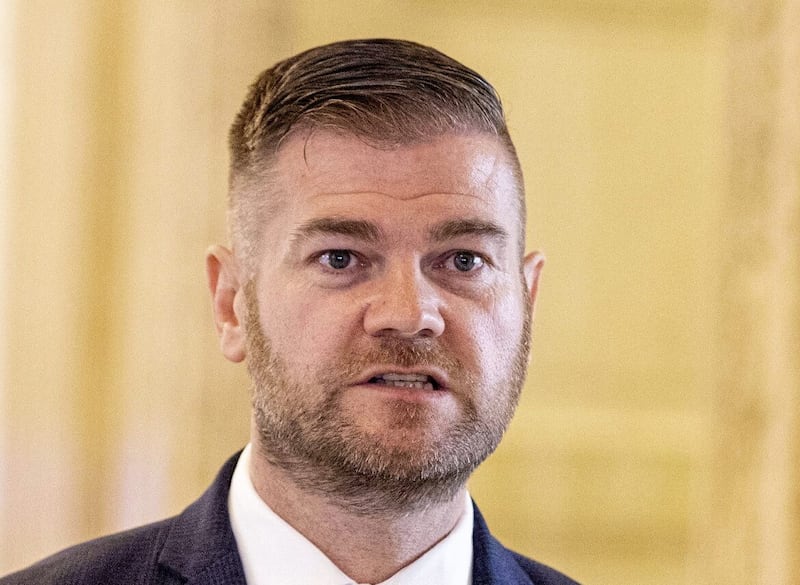FAMILIES bereaved by the pandemic in Northern Ireland have said they had expected more from UK Covid Inquiry’s first report.
On Thursday, Inquiry Chair Baroness Heather Hallett said the citizens of all regions in the UK had been “failed” by a lack of preparations for a global pandemic.
Stating that authorities were “dangerously mistaken” in believing the UK was one of the best-prepared countries in the world for such an emergency, she set out a series of urgent recommendations to prepare for the inevitability of another pandemic.
The first in a series of reports, the Inquiry’s work is set to continue until 2026 and cover other topics including the decision making of devolved administrations.
Brenda Doherty from Northern Ireland Covid-19 Bereaved Families for Justice was among those in London on Thursday for the report launch.
🧵/1 Watch the Inquiry Chair, Baroness Hallett, introduce the first of the Inquiry’s reports: Resilience and Preparedness.
— UK Covid-19 Inquiry (@covidinquiryuk) July 18, 2024
"Unless the lessons are learned and fundamental change is implemented, the human and financial cost and sacrifice of the pandemic will have been in vain." pic.twitter.com/SQSRam8KuI
Her mother, Ruth Burke (82), was the first woman to die from coronavirus in Northern Ireland in March 2020 after contracting the virus in hospital.
Speaking to the Irish News, she called on Lady Hallett to go further on suggesting changes for how Stormont Executive approached the pandemic.
“The report clearly shows we were failed, that the government let us down and left us extremely vulnerable,” she said.
“Things that should have been put in action weren’t. I feel we’ve been vindicated in our call for an inquiry.
“The recommendations that Lady Hallett has made are positive and a step in the right direction, but we feel that they don’t go far enough.
“Especially in relation to Northern Ireland. We need to take into account the whole island approach and how our assembly is set up, and that some of the recommendations she’s talking about won’t work in Northern Ireland.”
One section of Thursday’s report referenced how the structural problems in Northern Ireland, in preparing for the pandemic, were “exacerbated by the suspension of the power-sharing arrangements” between 2017-20.
It added: “The constitutional arrangements in Northern Ireland do not lend themselves to The Executive Office directing the work of other departments, and it is beyond this Inquiry’s remit to recommend changes to those arrangements.”
Ms Doherty said: “I would hope that in Module 2C she actually will comment. While it might be seen as a constitutional issue, it’s very clear that we won’t move forward without addressing that.
“At the end of the day these are recommendations and it’s up to all of the nations to implement them.”
Hoping to meet with the first and deputy first ministers over the report, Ms Doherty said she will continue to argue for a Northern Ireland-specific Covid Inquiry “to cover the gaps”.

Meanwhile, Alliance MLA Paula Bradshaw and SDLP MLA Colin McGrath have called on Sinn Féin and the DUP to publicly commit to never collapsing Stormont again.
Ms Bradshaw said: “Frankly, even though no one could have foreseen the immediacy with which contingency arrangements would have to be put into place, it is obvious that bringing and keeping the institutions down over that period ended up costing lives in the emergency which directly followed,” she said.
“Devolution cannot be a plaything of political parties; it is fundamental to the system of government in Northern Ireland and to the effective administration of public services, including of emergency provisions when these are necessary.”
Mr McGrath added: “It’s clear that political fallouts hampered our preparedness for a pandemic and we need commitment from the DUP and Sinn Féin that they will not collapse the institutions again. The people of the north must never again be placed in the situation where important decisions need to be made, yet no ministers were in place to make them.
“Thankfully we have come through the pandemic, but there is still a need for the executive to show the political maturity the public deserve. Whether that is through publishing the long awaited Programme for Government, or following the recommendations of the Covid-19 Inquiry, the days of inaction and deadlock must be firmly behind us.”








